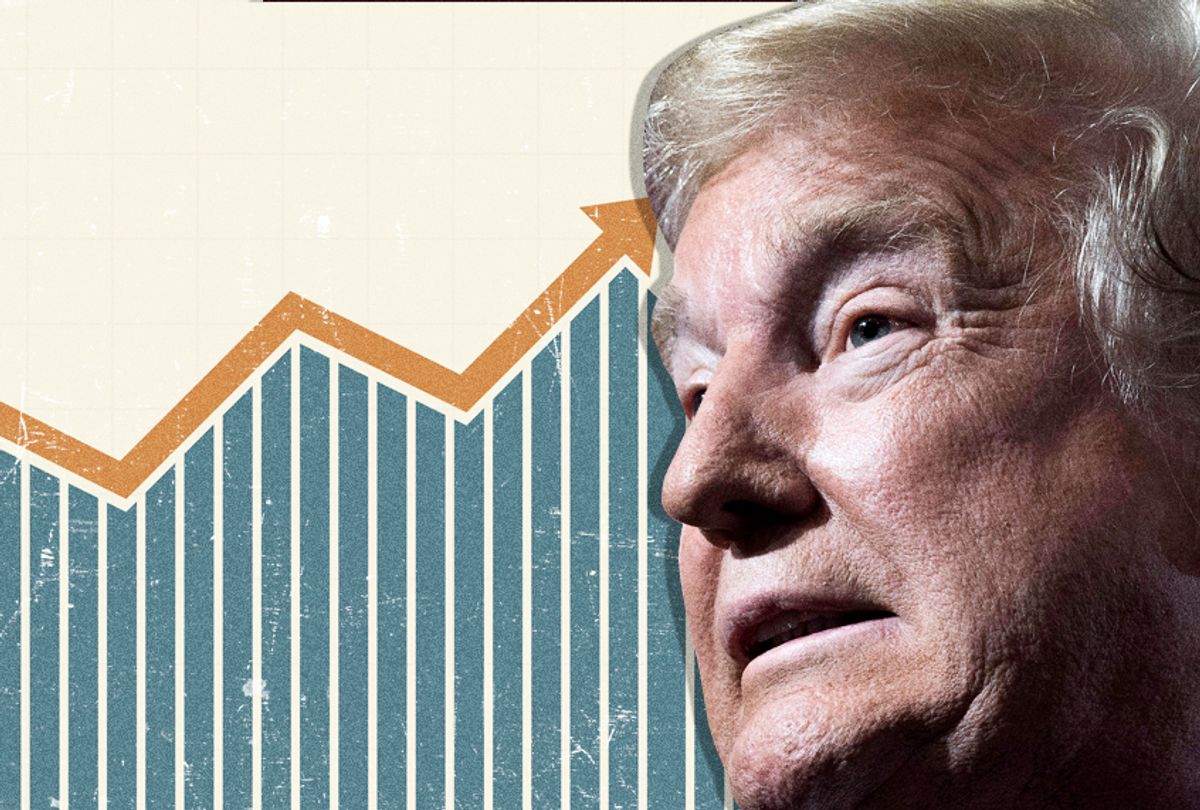Whatever Donald Trump's grievous failings on fact-based, empathetic leadership or his various failures on managing the coronavirus pandemic and displaying compelling leadership by mitigating racial division, it is another lost opportunity that is the only one that is truly surprising.
Trump's economic short-sightedness
Trump's failure to craft an effective economic response to the COVID 19 pandemic is extremely short-sighted for a politician who is otherwise so focused on the importance of a solid economic performance.
Trump and his Senate allies blocked food stamps and rejected adequate income support for U.S. households. According to the Hamilton Institute, government assistance is currently replacing only about half of salaries and wages lost to COVID 19.
The U.S. Census Bureau has found that 48% of households suffered income losses since mid-March and 33% expect lost work to reduce incomes in the month ahead.
About 32% of tenants in the United States today have little or no confidence of paying rent on time. People around the nation are facing millions of evictions this summer. And mortgage delinquency rates have doubled.
Not helping small business either
The Trump administration's job support assistance for small business (the Paycheck Protection Program) has been marred by onerous terms and a chaotic rollout.
And the level of financial support that has been made available to these small firms stands in stark contrast to the trillions of dollars in support provided to U.S. financial institutions via open-ended purchases of loan-collateral securities and overnight purchases of money market securities by the U.S. central bank.
25 million jobs lost
The plunge in demand from cash-strapped U.S. households, and rules limiting commercial gatherings have destroyed 25 million jobs since late 2019. No wonder that unemployment has reached levels that are unprecedented in 90 years.
Corrected for misclassifications, the Labor Department unemployment rates in April (19.7%) and May (16.3%) were higher than all but two years (1932 and 1933) of the Great Depression, and far above 2007-2010 during the Great Recession.
Cautious U.S. households boost savings
As a result, the recovery will be anemic. A National Bureau of Economic Research analysis concludes that 42% of job losses will be permanent.
Tens of millions of newly immiserated households means replacing those jobs translates into weak U.S. consumer demand. This is exacerbated by more affluent households nervously hoarding income.
The U.S. Bureau of Economic Analysis reports that the personal savings rate well more than doubled in April to a record 33%. No surprise there: The household savings rate doubled for years following the Great Recession a decade ago.
Bad testing and tracing = weak consumer demand
Spending will also be hampered by household infection-dynamics created by Trump's failure to institute widespread community testing and contact tracing.
The characteristics of COVID 19 — highly contagious with perhaps 35% of infections asymptomatic — means the dread of infection will be a persistent and sizable damper on consumer demand until a vaccine or much better treatments emerge.
This bleak reality is why the Congressional Budget Office is forecasting a weak economy in the third quarter on the cusp of the November election, with 15.8% of Americans still unemployed.
Anemic job recovery
That anemic pace of new job formation means 20-25 million Americans jobless as they and their neighbors cast ballots.
Notably, those losses are concentrated in politically important swing states like Michigan and Pennsylvania. That is bad news for Donald Trump. It doesn't help him that enthusiastic opposition to Trump among people of color may translate to robust voter turnout for the Democrats.
A sluggish pace of new job formation also comports with experience from the Great Recession. It took five years for new U.S. business formation to produce sufficient new jobs to replace the 8.8 million jobs lost in 2007-2009.
After COVID 19, more than twice as many lost jobs must be replaced.
Economics alone won't reelect Trump
Despite of all this sobering news, Donald Trump is still counting on a rebounding economy to power his reelection. That is almost certainly an illusory hope.
In the presidential election season that is now beginning in earnest, U.S. consumer confidence will be hampered by gyrating GDP and jobs data.
The probability of serial spikes in COVID 19 infection caseloads won't help his cause either.
Trump's challenge beyond the economy
But Trump's real challenge is the separate and far more consequential erosion of public confidence in his skills as ship's captain.
The odds that Mr. Trump can convince voters to book tickets on a second voyage he would command yet again despite careening the previous one onto the rocks are diminishing




Shares